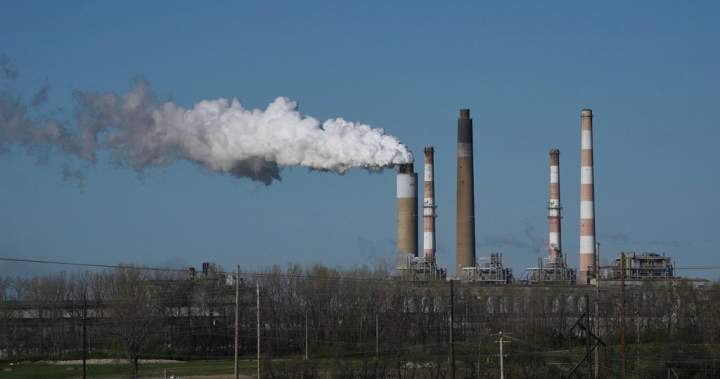In an unprecedented legal confrontation that strikes at the heart of Canada’s climate commitments, the Saskatchewan Environmental Society has launched a formal challenge against the provincial government’s controversial decision to extend the operational lifespan of coal-fired power plants beyond federal deadlines. The battle, unfolding in Regina’s courtrooms this week, represents a critical juncture in the ongoing tension between provincial energy policies and national climate objectives.
“This isn’t simply about one province’s energy decisions—it’s about the integrity of Canada’s entire climate framework,” explained Dr. Melissa Hartwick, lead environmental scientist at the University of Saskatchewan. “When federal deadlines for phasing out coal emissions are treated as optional, we create dangerous precedents that undermine our collective commitments.”
The legal challenge centers on Saskatchewan’s plan to continue operating modified coal plants well into the 2030s, significantly beyond the 2030 federal phase-out deadline established in Canada’s climate strategy. Provincial officials maintain that technological adaptations, including carbon capture systems, justify the extensions while addressing climate concerns.
SaskPower, the provincial utility at the center of the dispute, has invested over $1.5 billion in carbon capture technology at its Boundary Dam facility near Estevan. The utility argues these investments demonstrate good faith efforts to reduce emissions while ensuring energy security for Saskatchewan residents during the transition to cleaner energy sources.
Environmental advocates counter that these measures fall dramatically short of addressing the plants’ overall environmental impact. According to documents filed with the court, even with carbon capture technology, extended coal operations would release an estimated additional 5-7 million tonnes of greenhouse gas emissions annually compared to renewable alternatives.
“The provincial government is attempting to rewrite federally mandated timelines through a technical loophole,” said Jessica Nordlund, chief counsel for the Environmental Society. “If successful, this would effectively nullify national climate targets and potentially trigger similar extensions in other provinces.”
The case has attracted national attention, with federal environment officials monitoring proceedings closely. Internal government correspondence obtained through freedom of information requests reveals federal concerns that provincial extensions could “significantly compromise” Canada’s ability to meet its international climate commitments.
Economic implications loom large over the proceedings. The Estevan region’s coal industry directly employs approximately 1,200 workers and supports numerous ancillary businesses. Provincial representatives argue that premature closures would devastate local economies already struggling with agricultural challenges and rural depopulation.
“We recognize the environmental imperatives,” stated Energy Minister Nathan Bronson in a press conference yesterday. “But we must balance these against our responsibility to Saskatchewan communities built around these facilities. Our approach represents that balance—reducing emissions while providing time for economic transition.”
The case highlights the complex interplay between energy policy, environmental imperatives, and economic realities facing Canadian provinces. Energy analysts note that Saskatchewan faces particular challenges in its transition due to its limited hydroelectric resources compared to provinces like British Columbia or Quebec.
Legal observers suggest the outcome could establish precedent for how provinces navigate federal environmental regulations going forward. Constitutional experts have weighed in, noting the case touches on fundamental questions about provincial autonomy in energy matters versus federal authority over environmental standards.
As deliberations continue in Regina’s courthouse, both sides prepare for a potentially lengthy legal process that could ultimately reach the Supreme Court. The implications extend far beyond Saskatchewan’s borders, potentially reshaping Canada’s approach to climate compliance and the delicate balance of federal-provincial powers in environmental governance.
As our world confronts increasingly urgent climate realities, can we afford to allow regional economic concerns to override national environmental commitments, or must we find more creative solutions that truly balance both imperatives?










